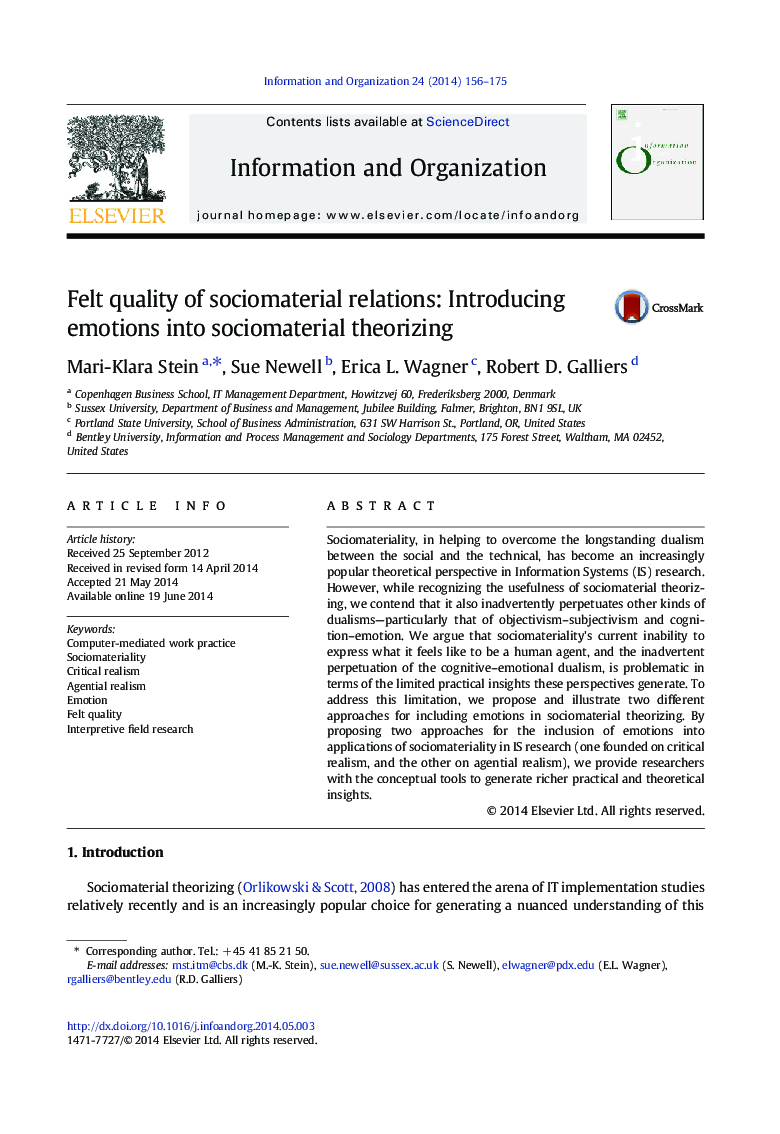| Article ID | Journal | Published Year | Pages | File Type |
|---|---|---|---|---|
| 554946 | Information and Organization | 2014 | 20 Pages |
•Sociomaterial approaches tend to perpetuate the dualism of cognition–emotion.•All sociomaterial associations have a felt quality.•Felt quality is produced relationally, “in an encounter between manifold beings”.•Including felt quality in theorizing brings sociomaterial accounts to life.
Sociomateriality, in helping to overcome the longstanding dualism between the social and the technical, has become an increasingly popular theoretical perspective in Information Systems (IS) research. However, while recognizing the usefulness of sociomaterial theorizing, we contend that it also inadvertently perpetuates other kinds of dualisms—particularly that of objectivism–subjectivism and cognition–emotion. We argue that sociomateriality's current inability to express what it feels like to be a human agent, and the inadvertent perpetuation of the cognitive–emotional dualism, is problematic in terms of the limited practical insights these perspectives generate. To address this limitation, we propose and illustrate two different approaches for including emotions in sociomaterial theorizing. By proposing two approaches for the inclusion of emotions into applications of sociomateriality in IS research (one founded on critical realism, and the other on agential realism), we provide researchers with the conceptual tools to generate richer practical and theoretical insights.
